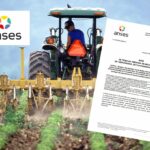Applications
Nanomaterials can be used in many different ways and concern many fields of application: food, cosmetics, clothing and textiles, household appliances, electronics and digital (screens), sports equipment, glass and construction materials, aeronautics, cars (bodywork, paints, windows, tires, fuels, …), boats, armament & defense, etc.
As the labeling obligation is currently only valid for a few product categories (cosmetics, biocides and food) and its implementation is poorly respected, it is very difficult today to know if a specific product contains nanomaterials.
The few available inventories that can be consulted to try to get an idea of the types of products involved do not provide solid, accurate and/or up-to-date information.
That is why we invite you to support our work to obtain more transparent information, through product testing, advocacy for the generalization of [nano] labeling and reliable and publicly accessible registers: the improvement of the r-nano register and the establishment of a European register are among our priorities.
The information sheets on the subject
Upcoming Nano Agenda

- 5th Joint Symposium on Nanotechnology
- Organizers: the Fraunhofer Nanotechnology Network, with the support of the Federal Institute for Risk Assessment (BfR)
- Date: May 13-14, 2025
- Topics:
- the application of nanotechnology in various sectors, including digitalization, 2D/3D printing, carbon-based materials and battery materials
- nano on various regulations (REACh, food contact materials, cosmetics, bioagents, PPPs)
- adaptation and development of OECD Test Guidelines for nano and advanced materials (Malta Initiative)
- review on nano-specific NAMs (new approach methodologies)
- when you’re nano and you know it: dealing with uncertainty regarding the nanomaterial definition in regulatory frameworks
- …
- Website: www.isc.fraunhofer.de/…2025/5th-symposium-nanotechnology.html
- 4-day training :
- the different routes by which toxic substances can enter the body
- the importance of toxicokinetics in preventing the toxicity of substances,
- the absorption, distribution, metabolisation and elimination of xenobiotics
- the toxicity of nanoparticles
- Organizer : Association Toxicologie Chimie (ATC)
- From May, 19 to May, 22
- Speakers :
- Frédéric Gaidou (Chemical engineer specialising in Toxicology, ERAMET Group, Paris, President ATC Paris)
- Sarah Dognin dit Cruissat (Doctor of Pharmacy, nutritionist, toxicochemist, CALMEVA, Lyon)
- Jean-Dominique Puyt (Veterinary Doctor, Honorary Professor at the École Vétérinaire, Nantes)
- Isabelle Malissin (Doctor, Hôpital Lariboisière, Paris)
- Nicole Proust (Research Engineer, Honorary Director of Research at the CNRS, Specialist in Nanotechnologies, Arsenic, Electromagnetic Waves, Palaiseau)
- Marie-Chantal Canivenc-Lavier ((Nutri-toxicologist, Centre des Sciences du Goût et de l’Alimentation INRA-Dijon)
- Claude Lesné (Doctor, Honorary Senior Research Engineer at the CNRS)
- Nicole Proust (Ingénieure Recherche, Directeur de recherche honoraire du CNRS, Spécialiste Nanotechnologies, Arsenic, Ondes électromagnétiques, Palaiseau)
- Website : https://www.atctoxicologie.fr/notre-formation.html

- E-learning program: awareness-raising for personnel who come into contact with nanomaterials during research, formulation, production, maintenance, cleaning, upkeep, etc., as well as safety coordinators or engineers, facility managers, heads of laboratories where nanoparticles are handled.
- Organizers: INSTN Grenoble (CEA)
- On the program:
- 1 – Introduction, definition and characteristics of nanomaterials
- 2 – Toxicity of nanomaterials: the state of knowledge
- 3 – Metrology and characterization of nanomaterials
- 4 – Prevention and protection against nanomaterials in the workplace
- 5 – Quiz: assessment of learning outcomes
- The 2-hour course can be viewed for one month from the date of registration.
- Website: https://instn.cea.fr/…risques-lies-aux-nanomateriaux…






